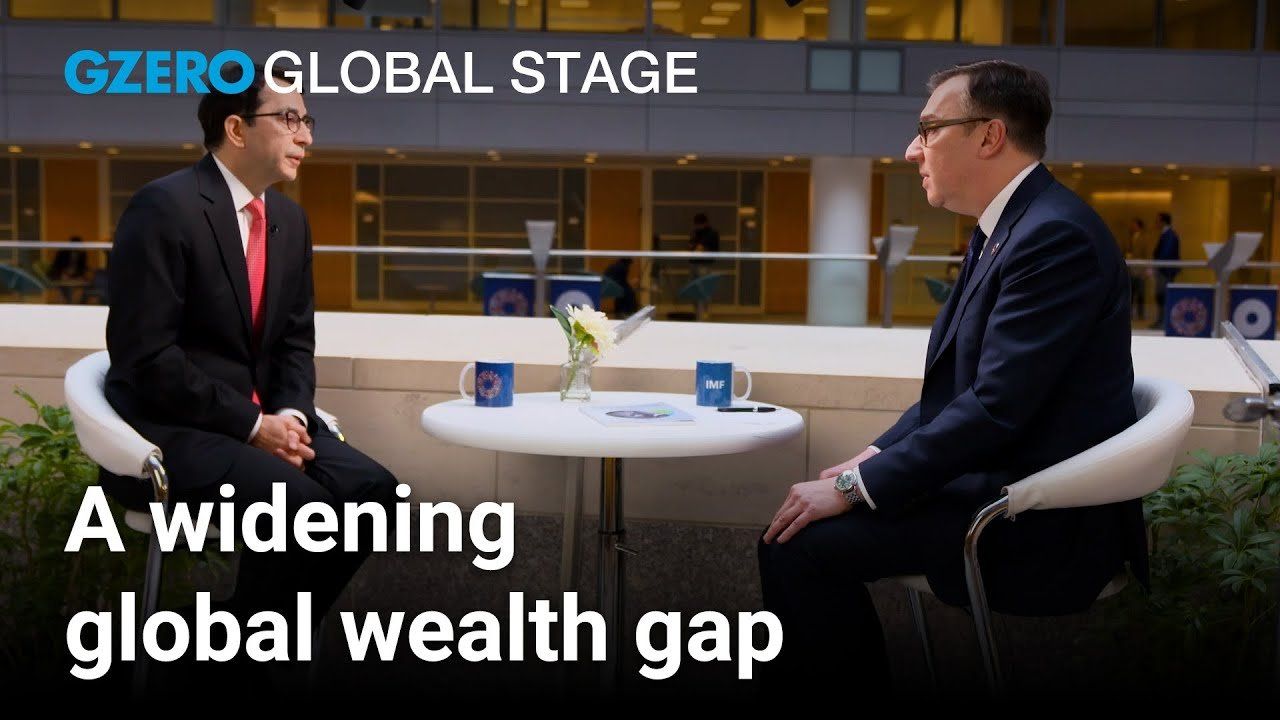Sustainability
World Bank economist: The poorest are getting poorer globally

World Bank economist: The poorest are getting poorer globally | Global Stage

It’s a staggering statistic and a marked setback from the years before the COVID-19 pandemic—the world’s poorest countries are falling further behind, and the wealth gap between the least and most developed nations is growing. One in three of these countries is poorer today than in 2019.
Ayhan Kose, World Bank Group’s Deputy Chief Economist, said that the combined shocks of multiple crises, including the pandemic, wars in Ukraine and the Middle East, food insecurity, and inflation, have taken a massive toll on the 75 least developed economies.
Kose spoke to GZERO’s Tony Maciulis as the annual Spring Meetings of the World Bank and the International Monetary Fund were underway this week in Washington, DC.
“When the food price goes up, the price of oil goes up. That has significant implications for these economies,” he told GZERO. “Where we are now, when you look at 2020-24, they registered the weakest growth rate on average since the 1990s.”
In many ways, the global economic outlook presented this week tells a tale of two post-pandemic realities. Kose explained that the most developed nations, particularly the US, showed greater resilience than expected early in 2023, and the threat of recession has been kept at bay. However, the negative impacts on poor countries, many of which are in Sub-Saharan Africa, cannot be ignored and could lead to greater geopolitical risk and humanitarian emergencies.
This week, World Bank leaders are calling for a renewed commitment to the International Development Association (IDA), which provides zero-interest loans and grants to nations most in need. Kose said the risk associated with crippling sovereign debt has caused some private sector funding to dry up and that politics and protectionism are impacting how wealthier nations approach funding.
But he also pointed to enormous opportunity in nations that are IDA-funded, including a younger population that could serve as a future global workforce and rich natural resources.
With proper investment and funding, he explained, other developing countries have been lifted to find sustained growth.
“At the end of the day history is full of examples. China, India, Indonesia, Chile, (South) Korea. They all used to be IDA borrowers. They were poorer countries. They became much richer.”
In this Quick Take, Ian Bremmer weighs in on the politicization of the Olympics after comments by Team USA freestyle skier Hunter Hess sparked backlash about patriotism and national representation.
100 million: The number of people expected to watch the Super Bowl halftime performance with Bad Bunny, the Puerto Rican superstar and newly minted Album of the Year winner at the Grammys.
Brazilian skiers, American ICE agents, Israeli bobsledders – this is just a smattering of the fascinating characters that will be present at this year’s Winter Olympics. Yet the focus will be a different country, one that isn’t formally competing: Russia.
Japanese Prime Minister Sanae Takaichi, president of the Liberal Democratic Party (LDP), appeals for a candidate during a street speech of the House of Representatives Election Campaign in Shintomi Town, Miyazaki Prefecture on February 6, 2026. The Lower House election will feature voting and counting on February 8th.
Japanese voters head to the polls on Sunday in a snap election for the national legislature’s lower house, called just three months into Prime Minister Sanae Takaichi’s tenure.